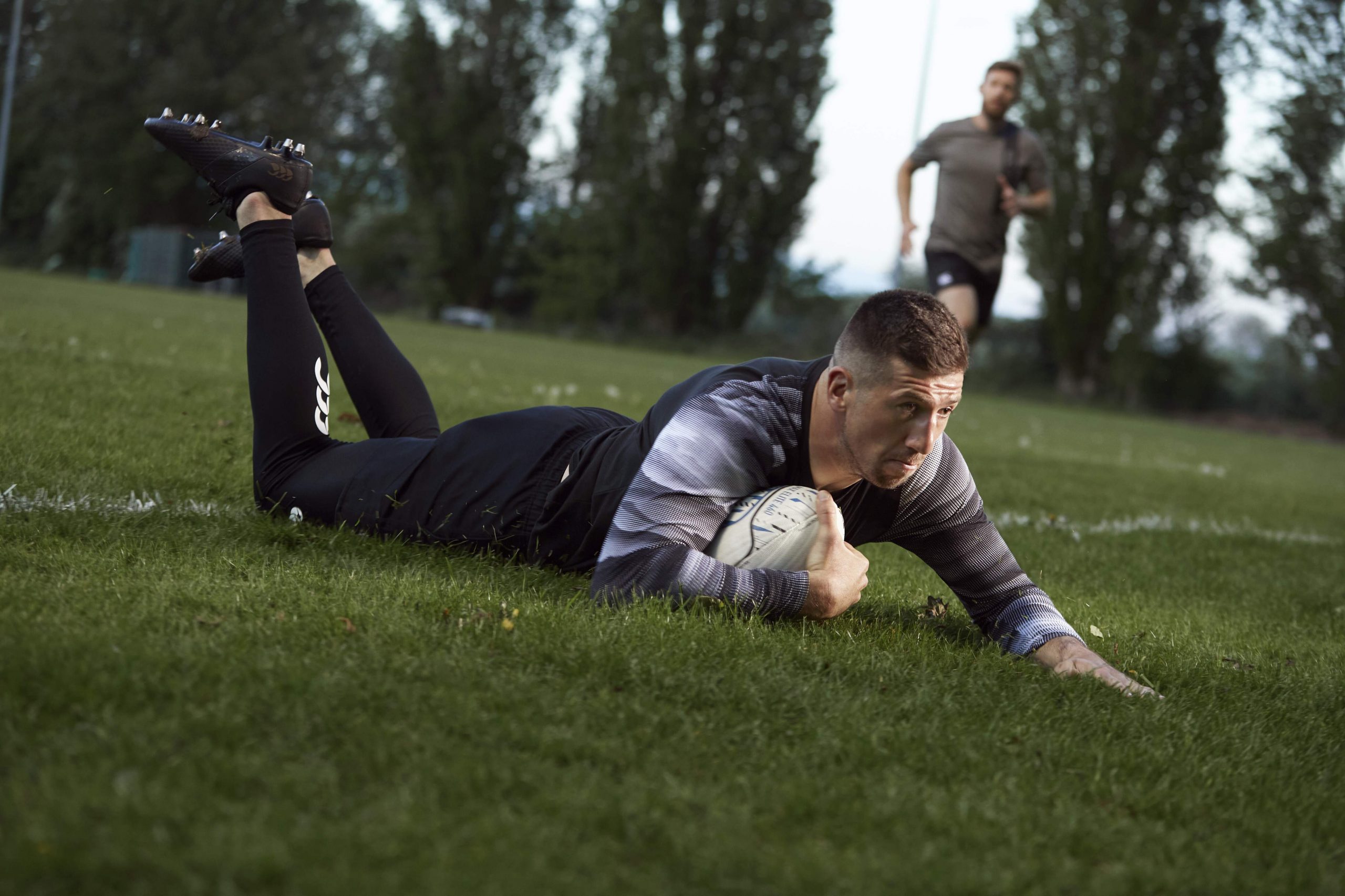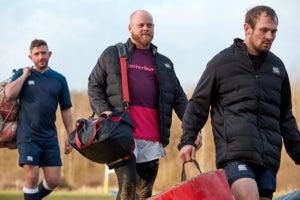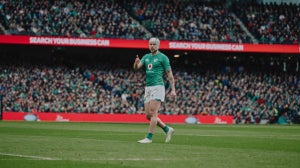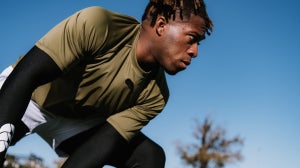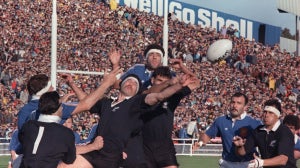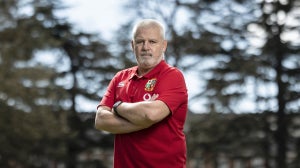
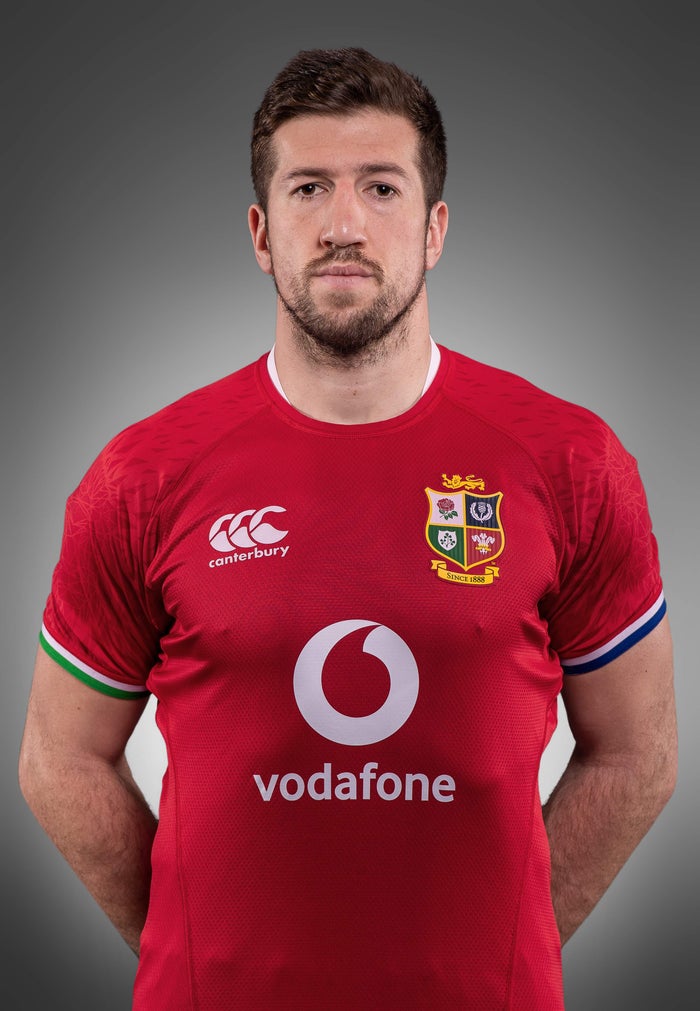
-Injury-
Q: You missed the Lions Tour through injury, how tough was that?
It was very tough. I’ve been lucky enough to go to Australia and New Zealand as part of previous tours and it would have been special to go to South Africa, but Rugby is a silly old game and injury is a part of it.
I was a little bit frustrated but in other ways, it was good because I got to spend more time with my family. It would have been nice to have gone, especially with Canterbury being official partners and to be able to represent them, but it just wasn’t meant to be.
Q: What has been your recovery routine for this recent injury?
It was hard at the start because no matter what I was doing I just couldn’t get comfy due the fracture in the shoulder. As a result, it was really difficult to sleep and when you don’t sleep you get grumpy! But I’ve got good people around me and a great physio team. They all helped me get back on track, you’ve got to be in the right mind-set.
At the start I was spending time on the bike and following a general programme that the physio gave me as everybody is different when it comes to recovery.
Q: What are the biggest challenges when suffering with an injury?
Touch wood, I’ve been quite lucky with injuries in my career. Every injury is different, you don’t know how it’s going to recover or if it ever will. A lot of people start thinking ‘what if’, but especially with an injury I just take one step at a time. You have good days and bad days, you’ve got to try and see the light at the end of the tunnel.

-Nutrition-
Q: How do you adapt your diet when you’re off with an injury?
Nutrition is quite tough, especially at the beginning. The main thing I’ve found is, you’re not burning as many calories as you can’t move around as much as usual. It can be quite easy to get bigger if you don’t watch your nutrition, which can slow the recovery down.
I’m basically having the same sized portions as the kids really!
-Recovery-
Q: You’ve said you’ve been quite lucky not to have too many injuries, however when you have, how do you recover off the pitch?
First of all, a lot of it is to do with the mind. If you live and breathe rugby, it probably gets on top off you and can be all-consuming. I find it’s important to take your mind off it all. I’m quite lucky with my family and we have some land where we live, so I get to spend time with the dogs, animals and kids. That puts you in a good place. But you do have to keep on top of recovery, I have to keep on top of my shoulder and follow the programme I’ve been set – you do need a good balance.
Q: The day after a match, what is your rugby recovery routine? Does it vary?
The games aren’t always 6-7 days apart now like they used to be. It’s often a quick turnaround so I like to spend my spare time chilling out, walking the dogs, things like that. I do like to go for a light run the day after a game but it is all dependant on how my body is feeling.
Q: Have you adopted any unusual recovery techniques in your career?
I do like to try different things, when we were on the Lions tour there was a breathing technique we did in the mornings. Some days you are really stiff, so I would literally do five minutes of this exercise and I could touch my toes by the end of it. It is one of those things I do with the physio, .
It’s little things like that that made me a believer in the end because I’m actually quite old school.
Some of the other boys will do different exercises though, so you need to find what works for you. I spend a lot of time listening to my body as well, especially now as I’m set to return.
Q: You have an Apple Watch on your wrist there, does that help you keep track of things?
It’s not that deep really, it’s more for my down time and for when I’m running. I won’t lose any sleep if I don’t hit 10,000 steps a day!
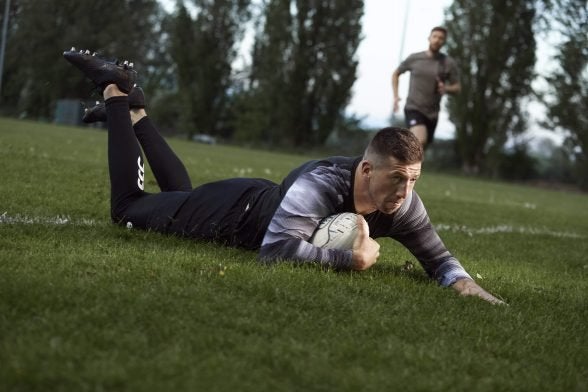
-Mental-
Q: What are your tips for staying motivated in recovery?
I like to set personal goals for myself to aim for when I’m back on the pitch. I don’t feel like I’m done with rugby and these end goals can help you through the tough days. I’m not just focusing on trying to fix the shoulder, it’s about setting yourself goals for the long run.
Q: You aren’t on social media, do you think that helps you switch off?
There are lots of positive and negatives to it. But on the flip side, a lot of the team show me the negative comments they receive. I’m very lucky because Canterbury decided to work with me because of my profile on the pitch and have brought me into the fold with their product development to see how I can help them offer the best products to players of all levels.
I see people after games go on social media, which isn’t probably the best thing to do these days whether there are good or bad comments. Once I am done with a game, it’s switch off time for me. I’m quite old school in that I’ll review myself and the performance with the team and how I can get better each week. That means that going into the next game, I know what I need to do to get better. I like to coach myself.
I know when I have had a bad game I do not want to go onto social media and be told I’ve had a bad game! I tell the boys: “why do you have social media, just take it easy and don’t look?”
Q: How important are your teammates to helping with that mental aspect? Does being part of a team help?
Definitely, it would be weird not being a part of that team. All my life I have been a part of teams, it is one of them things you enjoy being a part of, you feel a responsibility because you don’t want to let them down.
Sometimes the boys just sit down and chat, sometimes we play cards. Anything to try and take your mind off it. We just regularly keep in touch with each other really.
Q: You said injuries are a part of the game, is that a mind-set you’ve always had?
Yeah, it’s one of those things. If you think about getting injured then you will get injured. It’s a tough part of the game, but you have to accept that you’re going to have injuries in rugby.
Q: Do you think your mindset is what takes you to that elite level? Refusal to get beaten and get you down?
I think it does help. Look at some of the top end players out there, it’s just relentless for them. There are setbacks, whether that’s form or selection or something else, but an open mind-set is what prolongs you in rugby. You’ve got to have that willingness to not give up. It’s all a part of the game.

